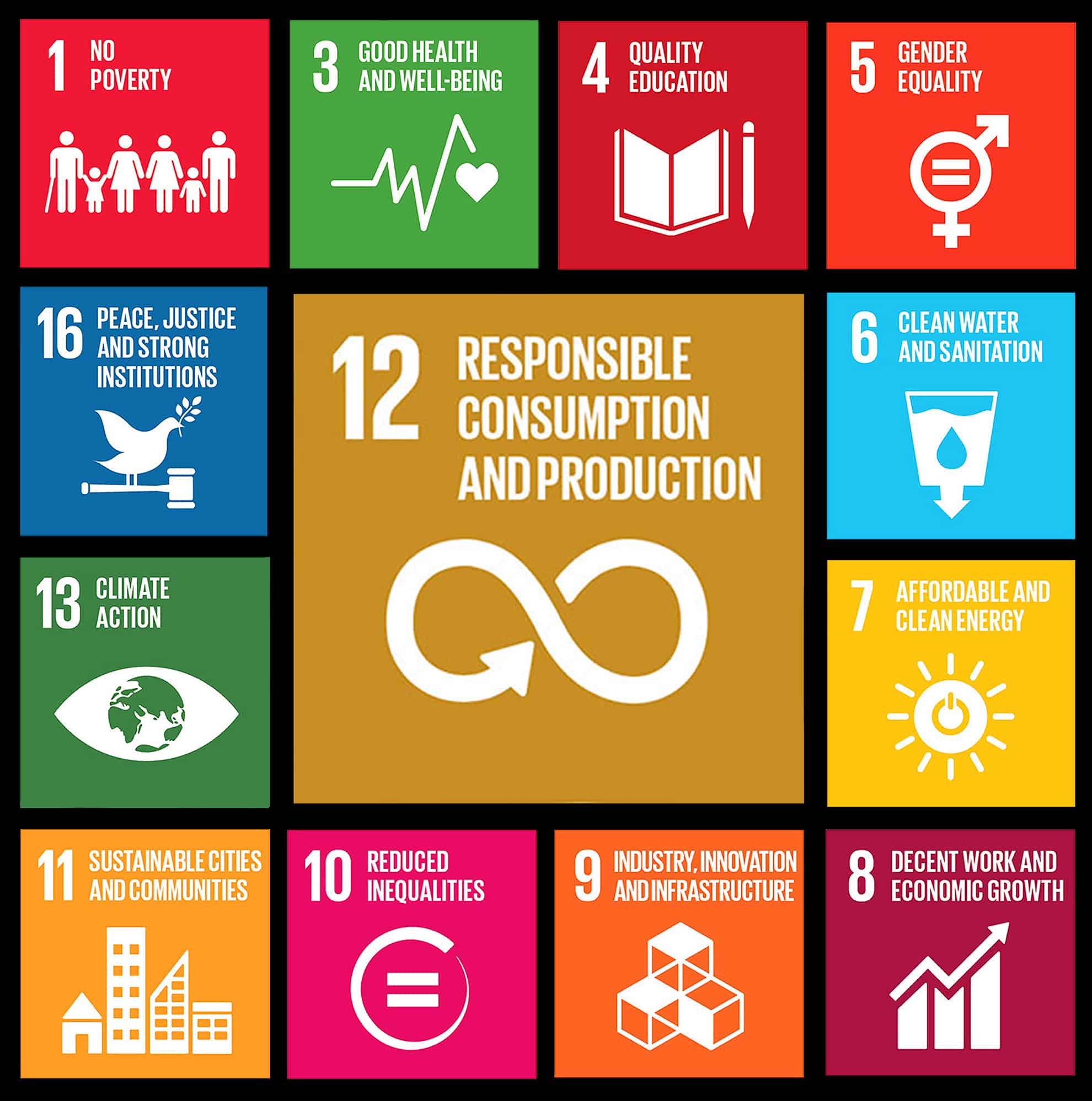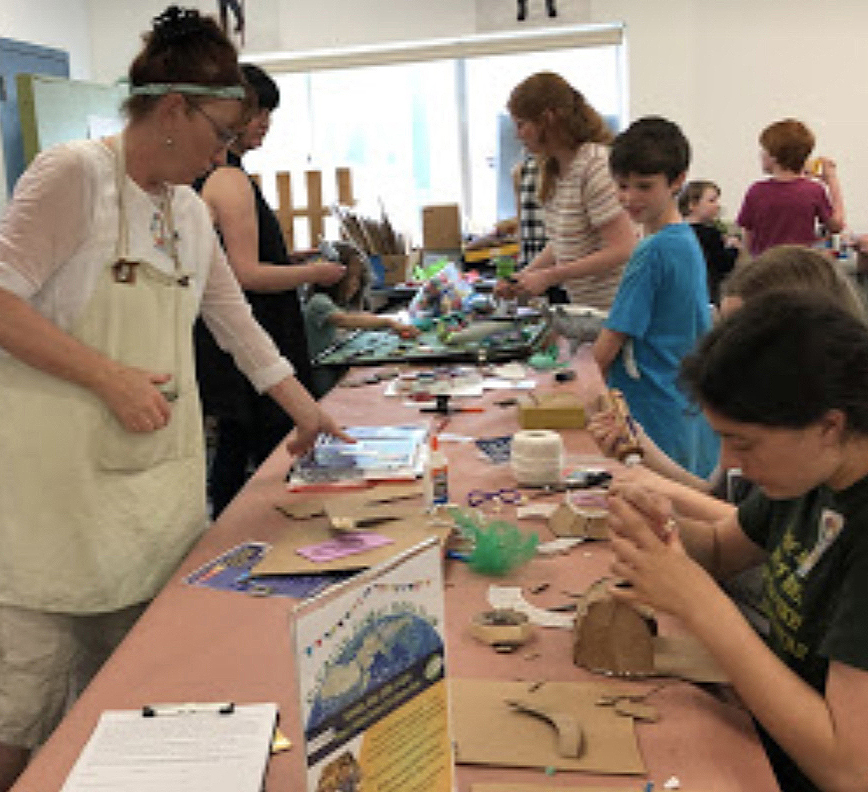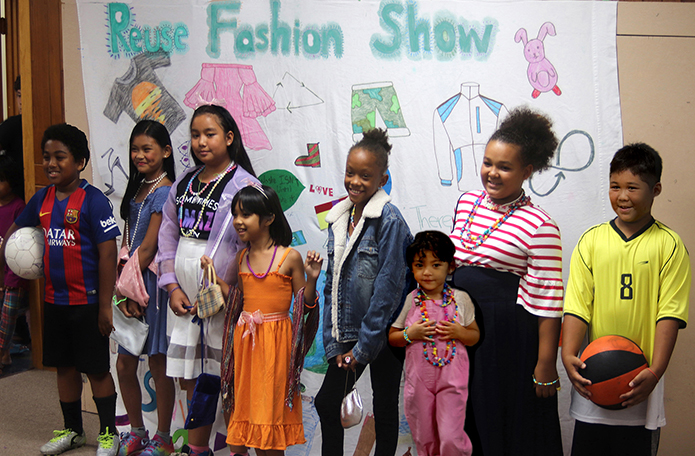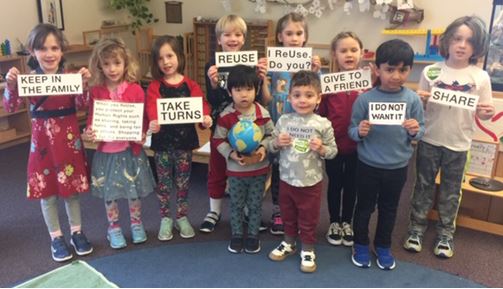PREFACE
Pick any item – a shirt or shoes, sports equipment, bicycle, cell phone, or any of the many products we use daily. Where did the raw materials come from? Were the people and their families who grew, mined, assembled and transported each item allowed to enjoy benefits from their labors without risk of harming their health and the environment? What actually happens to each component and its packaging? Are they soon discarded and sent to landfills? Or recycled?
We’ve become accustomed to the “purchase – use – discard” cycle without assessing the hidden costs and considering alternatives.
Words Into Deeds partnered with Finger Lakes ReUse on several projects designed to help area youth, grades PreK-20, develop greater awareness of the immediate and hidden costs, both financially and environmentally, of repeating this cycle. As a framework, they focused on Sustainable Development Goal #12 to address this complex issue.

Sustainability, a key element of SDG #12, is integral to making progress in many other goals that affect all our lives.
IN STORE PROGRAMS
On-site explorations of ReUse stores were preceded by workshops introducing the SDGs and concepts of sustainability. For example, participants in the Cornell Science and Technology Entry Program were asked to select a product and follow it from its origins to assembly to packaging and transporting, finally arriving at a local store. These researches often produced surprises, revealing hidden costs to people and the environment.

In preparation for a tour of the ReUse store, area students participating in the Cornell STEP program discuss reuse vs recycle vs discard practices as they relate to SDG#12.
A Pop=Up project co-organized with Ithaca Open Art Hive brought younger participants to ReUse, where they each selected one of the SDGs then designed interpretive art pieces using materials found in the store.
[caption id="attachment_1316" align="aligncenter" width="868"] A Pop-Up project co-organized with Ithaca Open Art Hive brought younger participants to ReUse, where they each selected one of the SDGs then designed art pieces using materials found in the store.
A Pop-Up project co-organized with Ithaca Open Art Hive brought younger participants to ReUse, where they each selected one of the SDGs then designed art pieces using materials found in the store.
URBAN 4-H PROGRAMS
The Ithaca Urban 4-H, under the direction of Ramona Cornell, offers after-school and summer programs. As part of two summer programs, younger children visited ReUse stores and selected items that they then modeled at a gala fashion show for their peers, parents and community members. Each model was introduced by one of the older students who shared brief “biographies” of the garments, shoes, jewelry or other items the models were wearing or carrying.

Local 4-H youth gain understanding about Sustainability and Responsible Consumption. Items they selected at the Ithaca ReUse Center were shown at their community fashion show, and for each the source of materials and importance of re-using was described.
As a backdrop, the group made a wall hanging depicting their take-away images from the project.
PROJECT AT ITHACA MONTESSORI SCHOOL
Teachers at the E. A. Clune Ithaca Montessori School invited Words Into Deeds to help expand their curriculum to incorporate the principles of the Universal Declaration of Human Rights and include the SDGs as a rubric for designing student projects. As example, students in one class played an interactive word game using ideas taken from both the UDHR and SDGs.

Interactive word games as a method for engaging younger students in conversations about Human Rights as related to the ReUse mission
